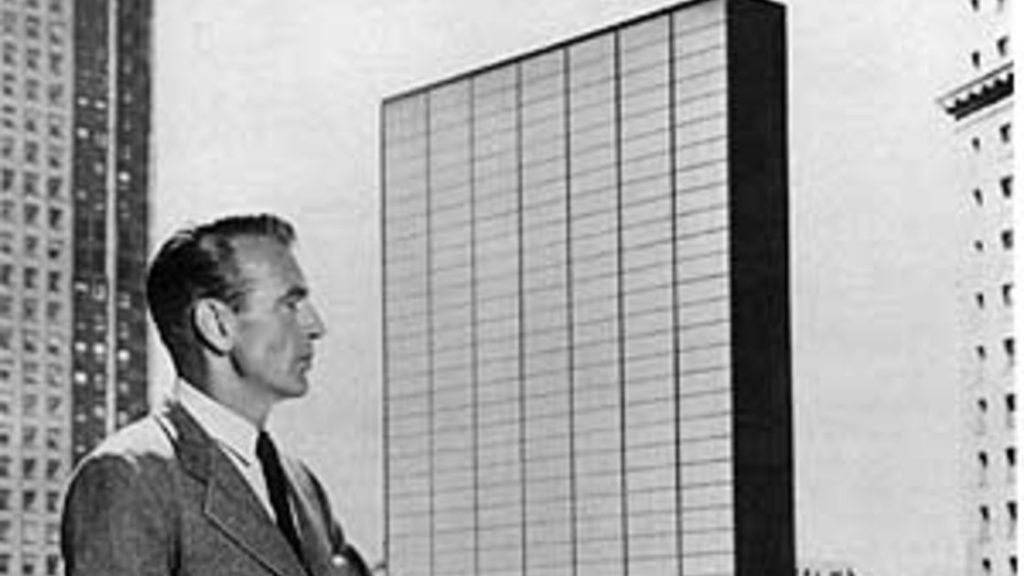
Big Tech’s Neoliberal Fantasy
Legendary ‘Wall Street Wide Boy turned Silicon Valley Savant’ and ‘Don’ of the PayPal Mafia, Thiel believes – as outlined early on in his much lauded book ‘Zero to One’ – that the rapid and profound innovation that came about in finance and technology in the late 20th and early 21st Century was brought about because these industries were ones where the government didn’t understand and therefore couldn’t regulate. He puts his money where his beliefs lie too, donating to a smorgasbord of out there causes that underline his extreme brand of individualism – life extension, Seasteading, the Singulairty – as well as a range of ultra-libertarian Republican candidates in the US. He also owns a doomsday ranch in New Zealand, just in case…
At least Peter Thiel doesn’t claim to be above ideology, which is more than can be said about many of the rest of the West’s greatest Tech evangelists. Whether forcing cities across the US to play beggar-my-neighbour to win vast tax breaks in return for pricing locals out of their homes with a new corporate HQ (Amazon), steamrollering over local employment laws and industry standards in the name of ‘disruption’ (Uber), or mocking local tax rules via complex and magical financial arbitrage (Apple, Google, Facebook, etc etc etc), Big Tech holds government in contempt – if they would just get out of the way the world will be a better place. Yet few would admit to what they are – Neoliberal Utopian Fantasists. Most instead claim to be above ideology, that what these companies are bringing about is, at its core, an unambiguous, value-neutral, vision of progress; ‘A just machine to make big decisions, programmed by fellas with compassion and vision’. The problem that this is itself an ideological choice.
Of course this belief has been tested, shaken even recently. Platforms such as Facebook and Twitter have been used (as they are designed to be) to manipulate elections. This was not a glitch, this is exactly how they are designed to be – to serve you what you want to hear and sell you attention to the highest bidder. That time and again they have ducked the responsibility to admit that they are an accountable published reflects how they continue to have your cake and eat it. But just watch Zuckerberg in front of the House, struggling to suppress a smirk (“We sell ads, sir”), or how the reaction from the rest of the tech faithful praised his barely-veiled contempt and we see that the true zealot will never be swayed from the cause. Any changes made from the inside – voluntary tax payments, roundtables with regulators, hiring more content moderators are designed to cement the substructure by sugaring the superstructure.
Their greatest defence is that this is a golden era for democracy in its broadest sense. A world now open to all, a collapsing of vertical structures in favour of new lateral networks that allow everyone access to everything. Cat videos! Child porn! Earthquakes and disasters! Famine! Kardashians! Earthquake and disaster memes! Rape! Furries! Cat videos! What Joerg Kock, editor of the German independent magazine turned fashion brand 032c, calls ‘The Big Flat Now’. But the issue is that it is only so flat. There is a hierarchy still. An unaccountable one that sidelines government and places us all as equals, sitting below the industry leaders who constellate our firmament. At this point, I would like to add that I love technology. I am writing this using cloud-based word processing on computer that has more power than I know what to do with. I have worked in and for numerous technology firms, and I plan to again, if this doesn’t outrage them, but the naivety that sees what they create as neutral-positive progress is naive. Technology is a tool. It is highly adaptable, and like any other tool that went before in can be used in many ways. A hammer only becomes a murder weapon when applied to the skull, but all tools have implicit ‘best uses’ in their design. Its why some are more regulated than others; automatic weapons, gene editing, Morphine. And when it comes to Big Tech, we are faced not just with invention, but innovation – the commercial application of technology in the name of profit. To sideline government in order to give unregulated access to these new, highly profitable tools to the general population is not Democratic. It is techno-authoritarian move that fundamentally ignores, or perhaps does not believe in, the moral limitations of markets and the value of societal transactions that cant simply be priced. As I said, naive at best; wilfully maleficent at worst. And either way, a definitively idealogical stance against the un-privatised polis.
The worst part is that even Thiel is wrong. Technology companies may spend on innovation, but they do little invention. A lot of D, but not so much R. The Ur-technologies – the internet itself, microprocessors, GPS, telecoms networks – were all brought about if not by the state, then by heavy involvement. The foundational science comes from public institutions and government funding; ‘investment’ that is only fixated with furthering human knowledge. What the secondary innovation from Wall Street and the Valley have in common is not that they are highly profound so much as highly profitable…
Category: tech